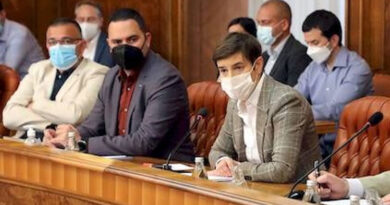Coronavirus holiday claims push Hiscox into a loss
 Image copyright Getty Images
Image copyright Getty Images Insurance company Hiscox said it has set aside $232m (£177m) to cover coronavirus-related claims including cancelled holidays and major sporting events.
The provisions helped pushed the firm into a loss for the first half of 2020, compared to a profit last year.
Hiscox boss Bronek Masojada said it had been a «testing six months».
«Some of these [travel] companies have gone bust and we are picking up the tab,» he said.
The firm is said to be part of a group of insurers which underwrote the cancellation of Wimbledon this year, although such losses are spread among a number of companies.
Other payouts will have come from cancelled weddings and postponed shooting for films and TV shows.
Hiscox is among eight insurers going to court to decide whether their policies should pay out to firms hit by the coronavirus.
The Financial Conduct Authority watchdog has said the test case, which started in July, will provide clarity to policy holders and that other insurers could be affected.
It follows complaints from firms, some of whom say they could go under, after insurers refused to cover their losses.
An outcome is expected in mid-September, Hiscox said.
‘Shock and amaze’
Hiscox’s reported a $138.9m pre-tax loss for the six months to June, compared to a $168m in the same period last year.
«Having been in the business of risk for 47 years, one might expect to become somewhat immune to surprises, but some events have the ability to shock and amaze. Covid-19 has proven to be thus,» said chairman Robert Childs.
Gross written premiums also fell, down 4.4% to $2.24bn.
Hiscox’s share price fell 5% to 742p on Monday.
Insurance market Lloyd’s of London, of which Hiscox is a member, said in May that it expected coronavirus-related claims to cost it between $3bn and $4.3bn.
That would mean the biggest amount the market has paid out since the 11 September 2001 attacks in the US.


